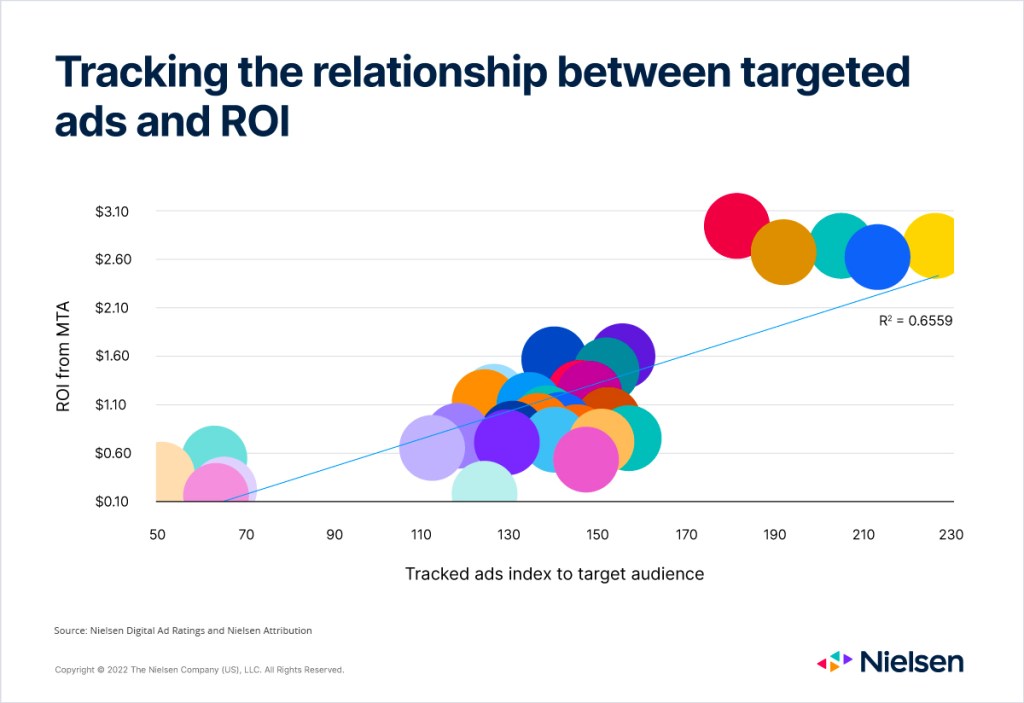Data has never been more important for brands and marketers.
As engagement with digital channels continues to rise, understanding the consumers behind those engagements is essential for matching the right message with the right audience. But if you’re only using contextual data, you’re only seeing part of the picture. For today’s marketers, combining contextual data (what’s being viewed) with behavioral data (what actions have been taken) creates a more complete picture of their target audience—and more effective messaging.
And messaging is critical as brands gear up for big ad spending increases, particularly across emerging digital channels. According to the Nielsen 2022 Annual Marketing Report, 51% of global marketers plan to increase their over-the-top/CTV spending in the coming year. In North America, the percentage is 61%, which aligns with the increase in video streaming last year. In the U.S., Americans streamed almost 15 million years’ worth of content across subscription- and ad-supported streaming platforms.

To meet consumers where they are, marketers need high-quality data that informs their strategies and helps them reach more of their target audiences. And according to the global marketers surveyed for the 2022 Annual Marketing Report, audience targeting is their most important marketing tactic.
A majority of global marketers (69%) believe first-party data is essential for targeting strategies and reaching consumers. But, despite their agreement on the importance of audience data, 36% of marketers think deriving insights from data is either extremely or very difficult.
Given the ever-expanding list of sources for consumer data, it’s easy to see why marketers find it difficult to glean insights from what are often disparate sets of data. But for marketers who are able to turn mountains of data sets into actionable insights, the rewards are plentiful.
According to a number of Nielsen multitouch attribution (MTA) studies, the most effective marketing tactics combine the power of both behavioral and contextual data to drive the highest ROI. Data from Nielsen Digital Ad Ratings (DAR) highlights that the average on-target percentage of ads across computer and mobile is 63%1—even for targets defined by age and gender—targets for which there’s significant data coverage and quality.
By complementing contextual data with high-quality, deterministically sourced behavioral data, marketers can be more effective and efficient with their marketing campaigns, increasing engagement with their target audiences. And this holistic approach to audience data can also increase confidence in lead attribution and revenue impact.
Nielsen recently conducted an analysis to validate that if you deliver the right ad to the right audience, you will improve your ROI, confirming that audience metrics are an early indicator of campaign performance.

In the study, we found that ad partners who served fewer ads to their target audience (lower left cluster) saw an average ROI of $0.25 per $1 spend, while those who delivered more ads to their target audience (upper right cluster) realized an average ROI of $2.60 per $1 spent.
And for Barceló Hotel Group, data is critical to understanding attribution, especially as the media landscape moves toward a cookieless future. Using Nielsen’s Identity Sync, the hotel group was able to attribute 98% of conversions to actual marketing touchpoints, increasing PPC revenue share by 23% and display revenue share by 17%. By effectively monitoring and testing campaigns in near real time, Barceló marketers were able to optimize targeting, spend and strategy across channels.
As the media landscape becomes more fragmented for consumers, so too does the data landscape for marketers. And bridging the data gap is more important than ever for brands focused on narrow target audiences. Marketers that want to meet potential customers where they are need to leverage a combination of contextual and behavioral data to continually optimize campaigns for maximum impact.
For additional insights, download our 2022 Annual Marketing Report.



